|
|
|
The Book of Common Prayer was published
in 1662. For those ministers who couldn't
agree with its 39 Articles of Religion,
it meant summary ejection from their livings.
There were many Dissenters among the
ordinary people, too, who didn't think the
practice of the Church of England was
protestant enough. They wanted more
reform, and had to meet in private houses
for prayer and worship
|
|
|
|
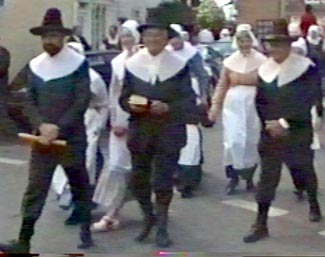 |
|
|
|
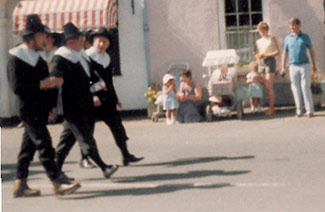 |
|
|
|
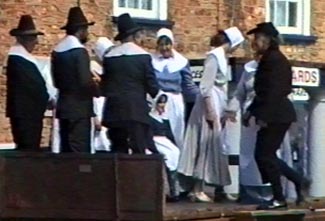 |
|
|
|
One of the dissenting clergy was Richard
Alleine, who was ejected from Batcombe
and is believed to have come to Wrington
where he was welcomed by those who
refused to go services in All Saints'. |
|
|
|
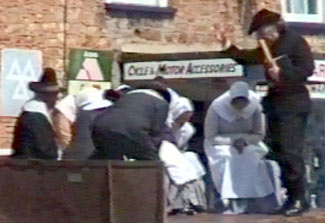 |
|
|
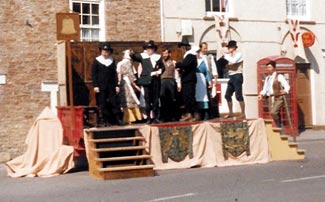 |
|
|
In 1714 a lawyer drew up a deed relating
to a chapel. It referred to "all that messuage
and tenement situate, lying, and being in
Wrington, one orchard garden containing
by estimation one acre."
In 1729, a deed was drawn up for a
proper designated Meeting House for
religious worship by Protestant Dissenters. |
|
|
|
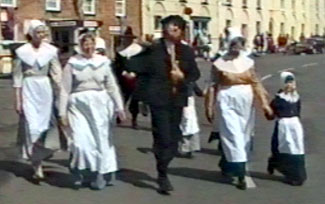 |
|
|
| The history of the present URC Chapel goes back to 1815, when a certificate was obtained by Richard Frost 'for a Meeting House situate at the upper end of the town of Wrington.'
In 1962, the Chapel celebrated its tercentenary
|
|
|
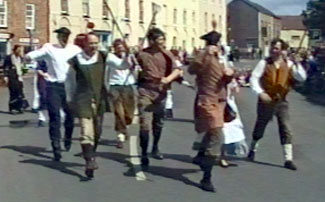 |
|
|
|
King Charles II was succeeded by his
brother, James II.
The illegitimate son of Charles - the Duke
of Monmouth - rebelled against James and claimed the crown. He swept through the
west country, stirring up support.
|
|
|
|
 |
|
|
|
Young farmers, armed only with staves and pitchforks, proved no match for James'
trained soldiers. Many were killed at
the battle of Sedgemoor, and wounded
stragglers returned home as best they could |
|
|
|
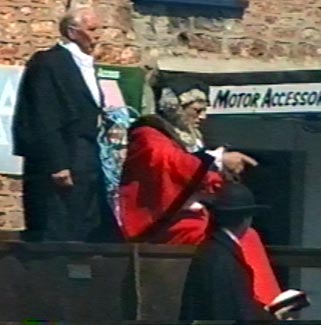 |
|
|
|
The Duke of Monmouth himself was tried
and beheaded on Tower Hill in London,
and in 1685, Lord Chief Justice Jefferies
was sent to the west country to hold a
series of courts which were to make sure
there were no more rebellions.
These earned the name The Bloody Assizes.
|
|
|
|
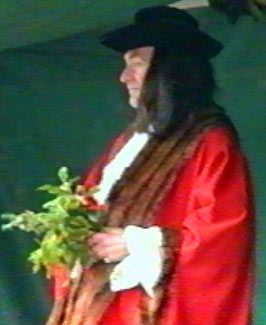 |
|
|
Contemporary reports tell of Judge Jefferies' dead-white face and scarlet robes. He looked permanently ill and coughed continuously into his lace handkerchief.
He buried his nose in his nose-gay to counter the stench of the poor.
There seemed to be corpses hanging from every tree
|
|
|
|
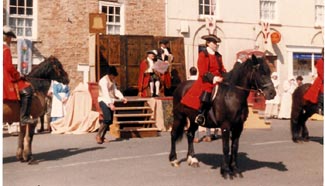 |
|
|
|
Three men were sentenced to be hanged in Wrington: David Boyce of Combwich ;
Joshua French of Chard ;
Alexander Key of Ilminster - a Quaker
|
|
|
|
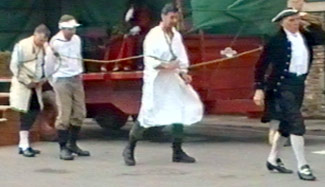 |
|
|
|
Two who were pardoned were :
Mary Bath, and George Legg, who gave his name to Legg's Farm, and founded Legg's Charity, which to this day assists needy children of the parish with education expenses. He died of natural causes in 1704.
|
|
|
|
To continue  |
|
|
|
|
|
|
|
|
|
|
|
|
|
|
|
|
|
|
|
|
|
|
|
|
|
|
|
|
|
|
|
|
|
|



